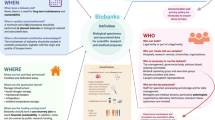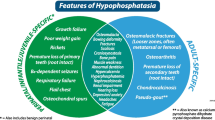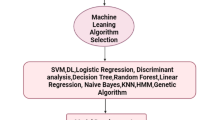Abstract
Genomics is an integral part of many pediatric diseases spanning all sub-specialities. While many genetic disorders are diagnosed with the currently available genomic tests, there still are many patients who do not receive a definitive diagnosis. The Indian Undiagnosed Diseases Program is a multicenter effort to address these challenges and unmet needs of rare disease patients where current available genetic tests have failed to make a diagnosis. It embodies the principles of collaborative effort across multispecialty disciplines, and uses detailed phenotype. Diagnostic methods are tailored to patient specifics and the large genomic data is interrogated with precise, in-house bioinformatics pipelines using patient-specific phenotype to build the diagnostic algorithm. The inception of this research initiative in India is a step towards creating awareness and appreciation of the needs for our undiagnosed cohorts to enable appropriate management in this era of precision medicine.
Similar content being viewed by others
References
Baynam G, Pachter N, McKenzie F, et al. The rare and undiagnosed diseases diagnostic service — application of massively parallel sequencing in a state-wide clinical service. Orphanet J Rare Dis. 2016;11:77.
National Policy for Rare Diseases 2021. Accessed October 12, 2021. Available from: https://main.mohfw.gov.in/sites/default/files/Final%20NPRD%2C%202021.pdf
Rajasimha HK, Shirol PB, Ramamoorthy P, et al. Organization for rare diseases India (ORDI) — addressing the challenges and oppor-tunities for the Indian rare diseases’ community. Genet Res (Camb). 2014;96:e009.
Molina-Ramírez LP, Kyle C, Ellingford JM, et al. Personalised virtual gene panels reduce interpretation workload and maintain diagnostic rates of proband-only clinical exome sequencing for rare disorders. J Med Genet. 2021 April 20: 10/303. [Epub ahead of print].
Taruscio D, Baynam G, Cederroth H, et al. The Undiagnosed Diseases Network International: Five years and more! Mol Genet Metab. 2020;129:243–54.
Beaulieu CL, Majewski J, Schwartzentruber J, et al. FORGE Canada Consortium: Outcomes of a 2- year national rare-disease gene-discovery project. Am J Hum Genet. 2014;94:809–17.
Firth HV, Wright CF, Study DDD. The Deciphering Developmental Disorders (DDD) study. Dev Med Child Neurol. 2011;53:702–03.
Undiagnosed Diseases Network International. Accessed October 15, 2021. Available from: https://www.udninternational.org
Girisha KM, Pande S, Dalal A, Phadke SR. Untapped opportunities for rare disease gene discovery in India. Am J Med Genet A. 2020;182:3056–59.
Nagappa M, Sinha S, Mahadevan A, et al. Genetically established familial amyloidotic polyneuropathy from India: Narrating the diag-nostic “Odyssey” and a mini review. Neurol India. 2020;68:1084–91.
Mishra R, Jain V, Gupta D, et al. Robinow syndrome and brachydactyly: An interplay of high-throughput sequencing and deep phenotyping in a kindred. Mol Syndromol. 2020;11:43–9.
Human Phenotype Ontology. Accessed October 11, 2021. Available from: https://hpo.jax.org/app
Kim J, Hu C, Moufawad El Achkar C, et al. Patient-customized oligonucleotide therapy for a rare genetic disease. N Engl J Med. 2019;381:1644–52.
Funding
Indian Council of Medical Research grant (33/9/2019-TF-Rare/BMS).
Author information
Authors and Affiliations
Corresponding author
Additional information
Contributors
All authors were involved in the preparation of the manuscript.
Competing interests
All authors are working at participating institutions in the program.
Rights and permissions
About this article
Cite this article
Puri, R.D., Dalal, A. & Moirangthem, A. Indian Undiagnosed Diseases Program (I-UDP) — The Unmet Need. Indian Pediatr 59, 198–200 (2022). https://doi.org/10.1007/s13312-022-2464-y
Published:
Issue Date:
DOI: https://doi.org/10.1007/s13312-022-2464-y




